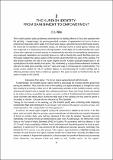The Kurdish identity; from banishment to empowerment
Abstract
In The Kurdish identity; from Banishment to Empowerment, Ola Rifai explores one of the important manifestations of the Syrian Uprising, namely, how it has directly and indirectly influenced the manufacturing and perception of identity in Syria. Rifai focuses on the proliferation of Kurdish identities after 2011, and shows how, to a large extent, these identities were imposed from above by actors with very specific political agendas. Rifai further sheds light on how the Syrian regime interacted with these identities on the basis of security concerns, rather than on Baathist ideological principles. Various dynamics, as Rifai narrates, explain why the PYD’s vision of an exclusive Kurdish identity was far more empowered than visions of Kurdish identity that were more conciliatory or more willing to remain under some type of Syrian national framework. Though all of this can be traced back to the event of the Syrian Uprising, as with other similar outcomes, the foundations for all of this are far older than the Syrian Uprising and are seemingly the result of the failure of Syrian politicians from independence onwards to address minorities, both ethnic and religious, in a manner that is genuinely inclusive.
Citation
Rifai, O. (2016). The Kurdish identity; from banishment to empowerment. Syria Studies, 8(2), pp. 12-24.
Publication
Syria Studies
ISSN
2056-3175Type
Journal article
Collections
Except where otherwise noted within the work, this item's licence for re-use is described as Attribution 4.0 International
Items in the St Andrews Research Repository are protected by copyright, with all rights reserved, unless otherwise indicated.


